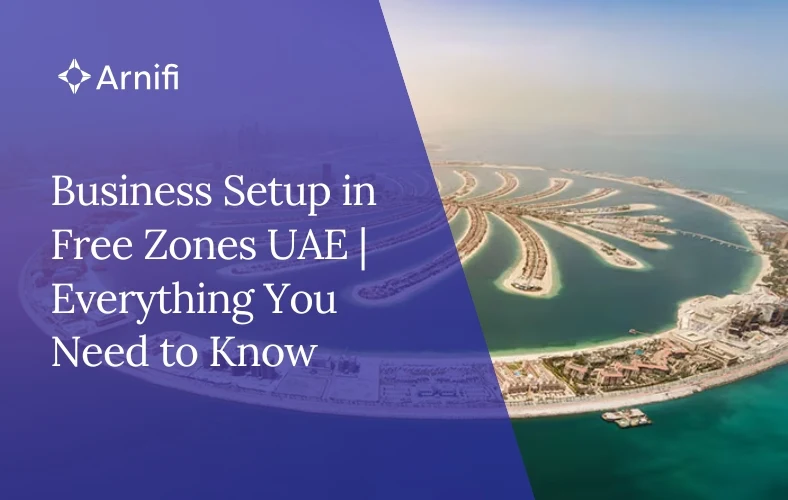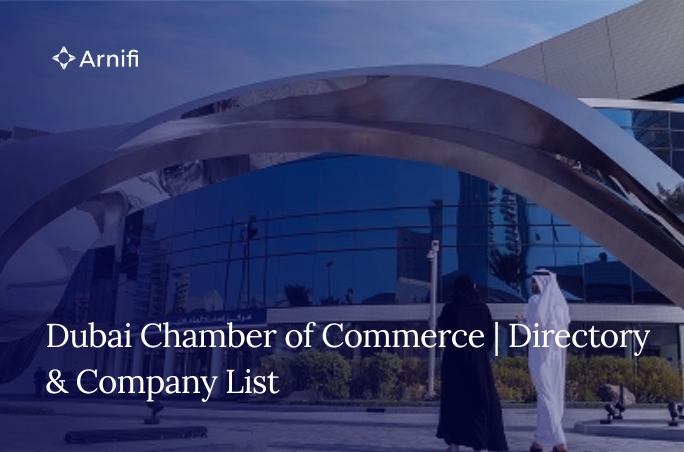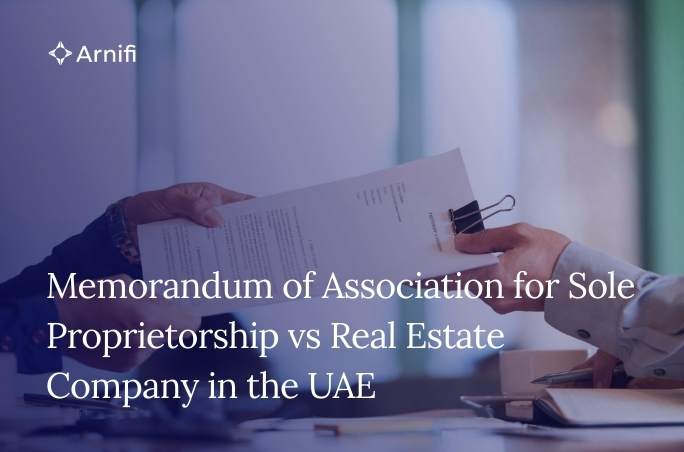Business Setup in Free Zones UAE | Everything You Need to Know
by Shethana Aug 06, 2025  10 MIN READ
10 MIN READ

Dubai has transformed from a small fishing settlement to a bustling international business centre that draws entrepreneurs and investors from all over the globe. Its advanced infrastructure, central geographic location, pro-business policies, and visionary leadership make it an ideal place for setting up a business. A major contributor to Dubai’s economic success is its free zones, offering benefits like full foreign ownership, tax exemptions, easy business setup, and world-class infrastructure. These zones foster innovation, boost international trade, and support economic diversification. For entrepreneurs looking to start a business, a step-by-step roadmap is essential. Key stages include identifying a business opportunity, conducting market research, creating a business plan, developing a funding strategy, product development, marketing, sales, team building, and continuous monitoring. Dubai’s supportive ecosystem, skilled workforce, and flexible regulations make it an ideal place to launch and grow a successful business.
1. Understanding the Free Zones in UAE
1.1 What is a Free Zone in UAE?
Free zone, or free trade zone, refers to a specific area in an emirate or a common economic zone where barriers to trade, such as tax and duty, are removed. The zones facilitate global trade by streamlining imports and exports, luring companies with tax advantages, less regulation, and free movement of products. Through the facilitation of economic activity and trade efficiency, free zones advance worldwide commerce while enabling involved countries to control third-party country imports.
1.2 Why Choose a Free Zone in UAE for Business?
Companies prefer free zones due to advantages such as tax exemption, fast registration, and access to international markets. They are exempt from customs duties and company tax, are allowed complete repatriation of profit, and have simplified installation procedures. Positioned close to seaports and airports, free zones offer easy trade access and qualified, multiracial labour forces for development and expansion.
To help with global business expansion
make sure you choose us.
Get in touch with our team to find out about our approach
BOOK FREE CONSULTATIONResponse within 24 Hours
Great, please give us a brief detail about your business.
2. Types of Free Zones in UAE
2.1 Industry-Specific Free Zones
Dubai has free zones for targeted industries, which provide businesses with the proper support and infrastructure to flourish. It could be technology, finance, healthcare, media, logistics, or manufacturing; these free zones provide industry-specific advantages to facilitate companies in growing and becoming successful in a competitive environment.
- Following are some of the main industry-specific free zones in Dubai
| Freezone | Industry Focus |
| DMCC (Dubai Multi Commodities Centre) | Trade & Commodities Business |
| DIFG (Dubai International Finance Centre) | Banking Finance & Investment |
| Dubai Media City | Media, marketing & creative industries |
| Dubai Health Care City | Healthcare, medical research & Wellness |
| Dubai Silicon Oasis | Technology & innovation-driven businesses |
2.2 General-Purpose Free Zones
A general-purpose area is an area such as a warehouse, industrial park, or port that is reserved for several businesses to store goods, equipment, and parts simultaneously. These areas function as Free Trade Zones (FTZs), offering firms a common area for storage and logistics.
- Some of the notable general-purpose free zones in the UAE include
| Freezone | Industry Focus |
| JAFZA (Jebel Ali Free Zone) | Trade, logistic & Manufacturing |
| IFZA (International Free Zone Authority) | Various business sectors |
| RAKEZ (Ras Al Khaimah Economic Zone) | Startups, SMEs, and large enterprises |
3. Legal Structures for Business Setup in Dubai Freezone
While establishing a business within a free zone, businesses may opt for varied legal structures based on their ownership, operational requirements, and commercial objectives. Liability, ownership interests, and regulation requirements are identified by these structures. The most appropriate legal structure is important in ensuring business efficiency and long-term success.
3.1 Free Zone Establishment (FZE)
A single shareholder can form an FZE, a limited liability company. It suits individual entrepreneurs or companies that seek total control without paying taxes or having restrictions on foreign ownership.
3.2 Free Zone Company (FZC)
An FZC, which is also an FZCO, is a multi-shareholder firm with a minimum of two and a maximum of five shareholders. It has the status of a separate legal entity, which provides limited liability protection and business-friendly regulatory access.
3.3 Branch Office
A branch office is a prolongation of a current local or overseas company. It enables companies to have operations in the free zone without establishing a new legal entity while being able to enjoy the tax benefits and geographic position of the zone.
To help with global business expansion
make sure you choose us.
Get in touch with our team to find out about our approach
BOOK FREE CONSULTATIONResponse within 24 Hours
Great, please give us a brief detail about your business.
4. Step-by-Step Process for Business Setup in UAE Free Zones
Establishing a company within a Dubai-free zone is a smooth process intended to welcome investors and businesspeople. The following is a step-by-step procedure to assist you through the establishment.
4.1 Selecting the Right Free Zone
Research different Dubai free zones depending on your business requirements, focusing on the critical factors such as location, infrastructure, specialization of industry, and expenses.
4.2 Choosing a Business Activity
Decide on what business activity you want to carry out, as various free zones have set regulations and activities allowed. Having the right activity will ensure compliance and the availability of corresponding business benefits.
4.3 Choosing a Trade Name
Choose a distinctive trade name that conforms to the UAE’s naming policy and captures your business identity. It has to be approved by the concerned free zone authority.
4.4 Applying for a Business License
Get a trade license according to your business activity. Typical licenses consist of commercial, industrial, and service licenses.
4.5 Renting Office Space
Select from flexi-desk areas, serviced offices, or assigned commercial space in the free zone based on business needs.
4.6 Registration and Licensing
Submit your documents, such as business plans, copies of passports, and lease agreements, to finalize company registration and get your license.
4.7 Opening a Corporate Bank Account
After registering your company, you will have to open a corporate bank account and seek employees’ required visas.
4.8 Obtaining Residency Visa and Employee Visas
Employees and business owners may apply for UAE residency visas via the free zone authority to live and work in Dubai.
5. Costs and Fees for Business Setup in UAE Freezones
Business registration within a free zone entails expenses such as company establishment, license fees, visas, office rental, and admin fees. Expenses differ by free zone, business, and office requirements. Knowing these expenses enables businesses to budget properly and select the appropriate free zone.
5.1 Registration and Licensing Fees
The price of establishing a Free Zone company, registration and license charges, usually ranges between AED 9,000 – AED 10,000 for the first registration, while the annual license charges are variable based on the activity of the business, varying between AED 10,000 to AED 50,000
5.2 Office Rental Costs
In a Free Zone, the cost of renting an office is usually between AED 15,000 and AED 20,000 annually for common desks or flexi-desks, while private offices are much more expensive, depending on size and location within the Free Zone.
5.3 Visa and Immigration Costs
The price of opening a free zone company and the cost of procuring a visa in the UAE will depend on the free zone selected, how many visas, and other services required, but is generally around AED 12,000 to AED 20,000 for the minimum company establishment with one visa, with each extra visa added for employees or dependents coming at an additional cost.
5.4 Annual Renewal and Maintenance Costs
The minimum cost of establishing a business in a Free Zone, to include renewal and annual maintenance fees, is usually between AED 10,000 and AED 50,000 annually, subject to the particular Free Zone, nature of business activity, and the license required, with extra costs for visas if applicable.
6. Key Benefits of Business Setup in UAE Freezone
Advantages
Complete Foreign Ownership – Free zone companies permit 100% foreign ownership without a local sponsor, providing investors with complete control and freedom.
Tax Benefits – Businesses enjoy zero corporate tax on profits, as well as exemptions on import and export duties, minimizing operational expenses.
Currency Flexibility – Foreign currency exchange is not restricted, facilitating international transactions to be smooth and efficient.
Advanced Infrastructure – Free zones offer cutting-edge infrastructure, including high-speed Internet, world-class logistics facilities, and luxury office space.
Profit Repatriation – 100% of the profit and capital may be repatriated by companies without any restraint, which maintains financial liberty as well as hassle-free reinvestment.
Simplified Business Setup – The process of registration and licencing is hassle-free, having minimal bureaucracy so that businesses are able to start quickly and effortlessly.
7. Free Zone vs. Mainland Business Setup – Key Differences
| Feature | Freezone | Mainland |
| Ownership | Usually allows 100% foreign ownership. | May require a local sponsor or partner for full ownership depending on the business activity. |
| Tax Benefits | Generally exempt from corporate and import/export taxes. | Subject to local corporate tax laws. |
| Business Scope | Primarily focused on international trade, limited to operating within the designated Free Zone. | Can operate freely within the entire country and access the local market. |
| Office Space | May not require a physical office space depending on the Free Zone regulations. | Must have a registered physical office within the country. |
| Visa Quotas | Easier & faster processing due to streamlined procedure within the Freezone. | May require compliance with more complex labor laws when applying for a visa. |
To help with global business expansion
make sure you choose us.
Get in touch with our team to find out about our approach
BOOK FREE CONSULTATIONResponse within 24 Hours
Great, please give us a brief detail about your business.
8. How to Choose the Best Free Zone for Business Setup
Select a free zone that matches your industry, market, price range, and growth demands along with the proper infrastructure and incentives.
8.1 Factors to Consider
- Cost Effectiveness
For an affordable free zone, take into account setup fees, license fees, office rental, utilities, visa fees, regulations, industry concentration, and market proximity.
- Industry Suitability
Seek out free zones that provide targeted benefits or incentives specific to your sector, e.g., access to specialized talent pools or industry-specific support services.
- Business activity approvals
The best free zone for your business is one that allows and readily approves your particular activity.
- Visa Quota availability
If visa quotas are your top concern, select a free zone that has elastic quotas depending on the size of your office space.
- Reputation & infrastructure
Make sure the free zone has office space, warehouses, and facilities your business requires.
8.2 Top Free Zones for Different Industries
When selecting a free zone to start a business as a foreign entrepreneur, consider factors such as business type, industry, and specific requirements.
- Trading & Logistics: Jebel Ali Free Zone (JAFZA), Singapore freeport, Singapore, Fujairah free zone.
- Technology & IT: Dubai Silicon Oasis (DSO), Dubai Internet City (DIC).
- Finance & Banking: Dubai International Financial Centre (DIFC), Abu Dhabi Global Market (ADGM)
- Media & Advertising: Sharjah Media City (Shams), twofour54
- Healthcare & Wellness: Dubai Healthcare City (DHC).
9. Additional Considerations for Business Setup in UAE Freezone
9.1 Taxation and Compliance
The Corporate Tax Law provides for a Qualifying Free Zone Person to enjoy a 0% Corporate Tax rate on Qualifying Income. The other income, which is not Qualifying Income, is taxed at the normal rate of 9% under Corporate Tax.
9.2 Corporate Bank Account Setup
To set up a corporate bank account in a Dubai-free zone, you’ll need to provide documents like the company’s trade license, passport copies, and business plan. You may also need to provide proof of address for shareholders and directors.
9.3 Hiring Employees and HR Regulations
Each free zone establishes its own regulations regarding visas, work permits, and contracts, with employee sponsorship being handled by the free zone authority.
9.4 Business Growth and Expansion
Think about whether scalability, branch expansion, or expansion on the mainland is possible within the free zone. Some free zones have flexible office upgrade options and other facilities to facilitate business expansion.
10. Key Takeaways
Starting a company in a UAE free zone business setup isn’t just about the tax perks or easy registration; it’s about giving your idea the right foundation to grow. Select the zone that suits your industry, plan your costs upfront, and receive expert assistance to avoid wasting time on a lengthy process. With Arnifi, you get a partner who knows the process inside out, helping you set up smoothly and focus on building your business from day one. Contact our experts at Arnifi today and begin your free zone journey with us.
Top UAE Packages

Related Articles
Top UAE Packages



